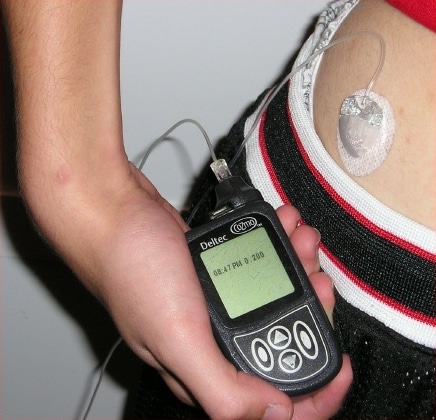Insulin – Long Acting (Lantus) Nursing Considerations
Included In This Lesson
Study Tools For Insulin – Long Acting (Lantus) Nursing Considerations
Outline
Generic Name
Insulin detemir, Insulin glargine
Trade Name
Levemir, Lantus

Indication
hyperglycemia with diabetes type 1 and 2, diabetic ketoacidosis
Action
stimulates uptake of glucose into muscle and fat cells, inhibits production of glucose in the liver,
prevents breakdown of fat and protein
| Route | Onset | Peak | Duration |
| Detemir | 3-4 hr | 3-14 hr | 24 hr |
| Glargine | 3-4 hr | none | 24 hr |
Therapeutic Class
antidiabetics, hormones
Pharmacologic Class
pancreatics
Nursing Considerations
• assess for symptoms of hypoglycemia or hyperglycemia
• monitor body weight over time
• may cause decreased inorganic phosphates, potassium, and magnesium
• monitor blood sugars every 6 hours, monitor A1C every 3-6 months

Transcript
Hey guys, let’s take a look at long-acting insulin with generic names, insulin detemir, insulin Glargine also known as Lantus or Levemir. This is an injectable medication as you can see here with the Levemir. The therapeutic class of long-acting insulin is an antidiabetic and hormone. While the pharmacologic class are pancreatics. Remember the therapeutic class is how the drug works in the body. While the pharmacologic class is the effect of the drug. So long-acting insulins work by stimulating the uptake of glucose into muscle and fat cells. Also, it inhibits the production of glucose in the liver and prevents the breakdown of fat and protein, which is why long-acting insulins are indicated for the treatment of hyperglycemia related to type one and type two diabetes, and for the treatment of diabetic ketoacidosis. Sometimes with insulin, we see side effects related to hypoglycemia, things like headache, nausea, sweating, confusion, and also because insulin is injected. Sometimes we can see injection site pain and redness.
Let’s take a look at a few nursing considerations for long-acting insulin. Remember to assess for symptoms of hypoglycemia and hyperglycemia. Monitor the patient’s body weight as insulin given over time can increase this. Long-acting insulin may cause decreased inorganic phosphates, potassium, and magnesium levels. Be sure to teach the patient that blood sugar must be monitored. And hemoglobin A1C must be checked every three to six months. So guys with insulin detemir, the peak is between three to 14 hours with the duration of 24 hours, and insulin glargine is said to actually not have a peak. And its duration is all 24 hours. Insulin detemir is the only insulin that has been shown to decrease the weight of a patient; however, the decreases are pretty small. That’s it for long-acting insulin or Lantus. Now go out and be your best self today. And as always happy nursing.


